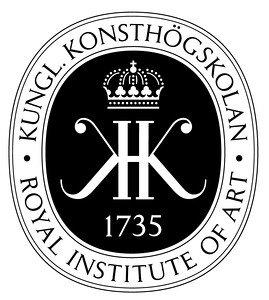Application Deadline: April 25, 2018
Flaggmansvägen 1
SE-111 49 Stockholm
Sweden
T +46 8 614 40 00
info@kkh.se
Kungl. Konsthögskolan - The Royal Institute of Art (KKH) in Stockholm is a leading art institution of higher education located in Stockholm with a long artistic tradition dating back to the beginning of the 18th century. The education offers both undergraduate and postgraduate studies in Fine Arts and postgraduate studies in Architecture. RIA also run an active international program with lectures, exhibitions and publications. The Vice Chancellor of the Royal Institute of Art is Sara Arrhenius.
Our three Post Master Courses in Fine Arts for the academic year 2018–19:
Critical Images (30 ECTS)
The one-year post master course Critical Images invites you to engage in a universal reflection on the right to the image and ethics of representation. The course builds on the anonymous Syrian film collective Abounaddara’s framework to experiment with the production of dignified images and to develop a critical, ethical discourse on the right to the image.
The course fosters an international and interdisciplinary approach and builds on several institutional collaborations. It is led by artist Katarina Nitsch and will be additionally taught by national and international guest lecturers; artists, filmmakers, researchers, writers, activists, human rights lawyers, philosophers and political thinkers; Nathalie Delbard, professor of Visual Arts, University of Lille, Charif Kiwan, member of Abounaddara, Hani Sayed, professor of International Law, the American University in Cairo, Dork Zabunyan, professor of Film Studies, Paris 8, and others.
The course is intended for those with a background in art, filmmaking, photography, visual media, human rights law, ethics, aesthetics, philosophy, activism and journalism who wish to advance and expand their critical, artistic and research skills, in order to contribute to a rethinking of the representations of injustices in the world. The students will work with practical assignments—image-making, sound, close reading, and writing—to develop an original work that reflects the points set out in the course, which will be presented at the end of the academic year.
Critical Images aims at equipping participants with intellectual and analytical tools to question and make visible the different practices of power and ‘aesthetic regimes’ that frame and condition the social practices for producing, disseminating and seeing images of war and rebellion. It also aims at taking seriously the task of collective experimentation in view of inventing new modes for producing, disseminating and experiencing images about the injustices of the world from the axiom that the dignity of the human persons must be respected. Students in the seminar will engage in a wide variety of theoretical, historical, philosophical and juridical reflections on the ethics of the image, and in the right to the dignified image as articulated explicitly or implicitly in the works of artists and by philosophers in the critical tradition.
Materialities (transmission/translation) (60 ECTS)
The course Materialities is our new course that will in an exploratory way put emphasis on experience and practical knowledge in the encounter with philosophical and theoretical thought. The motivation behind the course is to create an experimental and investigative environment where the techniques of making oscillate between the analogue and the digital, where translations between ideas and matter or the reshaping of volume and substance, are in focus for reflection and transfer of knowledge. Transformations can happen by finding other solutions and through unexpected results that provide new experiences, or in the transmission between media that generates a “glitch” or a perfect finish. Through engaging in recurrent artistic discussions based in practical work, we will extend our understanding.
Materialities (transmission / translation) is a one-year full-time course on the advanced level that is primarily open to artists with a few years of professional experience. Within the course, different aspects of transmission and translation between digital and analogue technology (and vice versa) will be studied and explored. The course intends to create conditions for an experimental milieu where the exploration of form, ideas, matter and media, can interact and support the artistic process.
The course contains both practical and theoretical elements and gives an overview of contemporary digitally operated techniques such as CNC milling, laser cutting, 3D-scanning, 3D-printing and other techniques that are useful in artistic processes.
The course is based on practical exercises and independent work as well as lectures and seminars.
The Photographic Artists’ Book – Dissemination in a Digital Landscape (60 ECTS)
This course is a one-year full-time postgraduate course primarily for professional practitioners in the fields of art and photography. Through theory and practice, the course focuses on how to work with photographic material in relation to publications in a broad sense. Based on aspects such as democracy, activism and history, the course examines various publication strategies in an expanding field and a digital landscape.
In addition to working with the students’ independent projects, in relation to developing and preparing photographic material for publishing, teaching is conducted in the form of group seminars, individual and group tutorials, lectures and workshops. A study trip within Europe will also be arranged, including lectures, visits and meetings.
The aim of the course is that each student is able to find the most adequate way of publishing their respective photographic material. The publishing format may be a book, but the course is also open for other forms of publication in which new technologies present innovative opportunities.
For more information about eligibility requirements, etc., please read more on our website.


